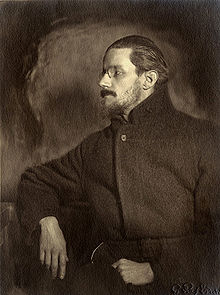-
How to Become an Intellectual is at once a
how-to manual and a glib walk through several thousand years of science and culture, complete with cameo appearances by everyone from Plato and Socrates to Freud and Marie Curie.
Available April 2012 in bookstores, as well as
on-line.
Joyce and the Dangers of Fame
October 10, 2012

Although they would likely profess otherwise (at least in public), many an intellectual thirsts for some degree of fame and fortune. Who wouldn’t want their books to earn millions, or to step into an auditorium crowded with cheering fans?
But fame and fortune can also have a downside—and no, just not hangovers and a creeping sense that you’ve sold your intellectual fire for a fat bank account. Fintan O’Toole’s review of Gordon Bowker’s James Joyce: A New Biography in the recent New York Review of Books describes an altogether different hazard attendant to renown: that your message, thoughts—everything that made you famous in the first place—can end up drowned out in all the applause.
O’Toole suggests that such a thing happened to Joyce:
“It was good, of course, that one of the greatest of Irishmen was at last being honored in his own country, and especially in the city that was, even after he left it for the last time in 1912, his imaginative universe. But Joyce really is dirty and scandalous. Those precious pages, for each of which the Irish government paid around $30,000, stink of flesh, ordure, and bodily fluids. They are steeped in forbidden thoughts and dishonorable desires, in secrets, blasphemy, and sex. They were not made to become holy relics.”
Joyce, of course, didn’t live to enjoy such widespread accolades (quite the opposite, in fact, at some points). But in O’Toole’s view, fame is having a detrimental posthumous effect on someone (he argues) who stands as one of the most ribald intellectuals of all time.
No comments yet



